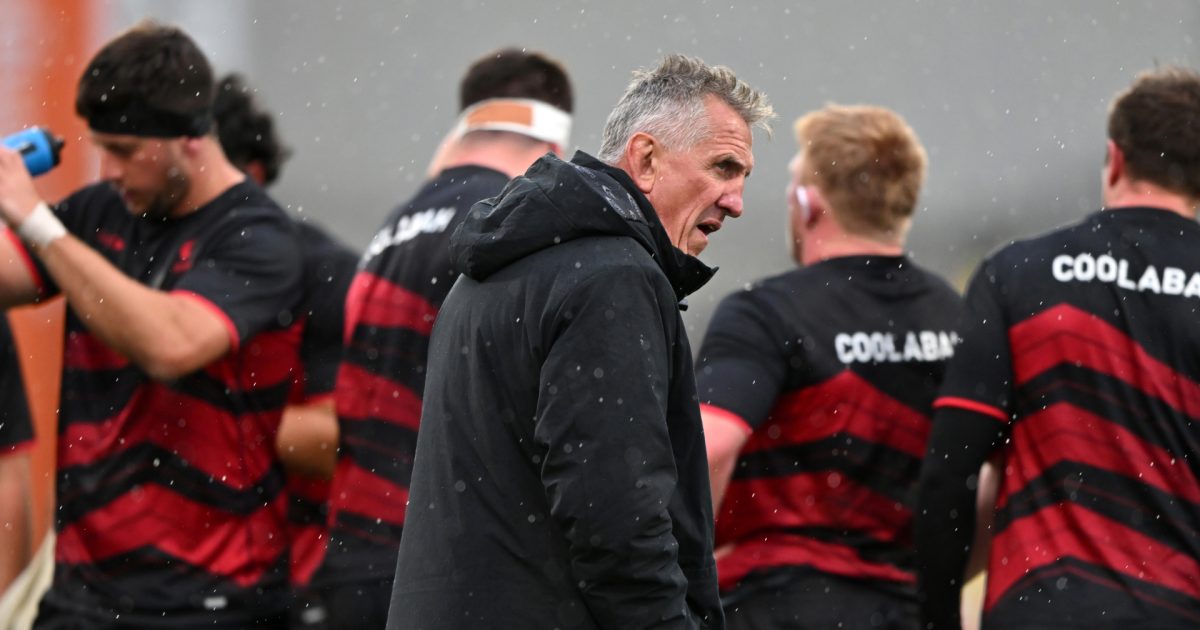
Rob Penney wasn't given much without Whitelock and Mo'unga

Rob Penney didn’t appoint himself.
No coach does.
I had misgivings about the decision of the Crusaders board to install Penney as head coach of the franchise and expressed those at the time.
I won’t go as far as saying the Crusaders set Penney up to fail in the short term, but I’m not sure he inherited the calibre of squad that predecessor Scott Robertson did.
The heart of Robertson’s Crusaders was Sam Whitelock. Richie Mo’unga the brains.
You take those two out and, frankly, you’re not left with much. At least not when it comes to having the clinical ability to win when it counts.
I see a few fans piling on Penney now and pointing to disappointing outcomes in his previous coaching roles.
Look, folk need people to blame when they’re unhappy, but Penney shouldn’t be the target.
Let’s isolate Whitelock for a moment.
Talk can be cheap, but it appears he’s been sounded out about an early return from his club contract in France and an unexpected swansong with the All Blacks.
Some might wonder why Robertson – having assumed the All Blacks job – might seek the services of a guy who’ll turn 36 later this year.
Well, look at how the Crusaders are going right now and wonder no more.
If anyone knows Whitelock’s value, it’s Robertson. He’ll be acutely aware of the hole left in the Crusaders without him and conscious that the same can’t happen to the All Blacks.
It was Penney that gave Whitelock his start in professional rugby. Robertson too, in a coaching capacity.
That’s why I struggle to join the group of folk wanting to round on Penney and I assume his appointment is potentially more about development than immediate results.
The Penney-coached Canterbury teams I covered were humble, hardworking and unbeatable when it counted.
The culture, to my eye, was outstanding and I’ll give a couple of examples.
Daniel Carter and Richie McCaw played a bit for Canterbury during Penney’s tenure.
As stars, they knew they would be doing media every time they turned up to training.
Neither gave you a lot, in terms of barn burning quotes, but I did once get a very good and informative one-on-one interview out of Carter.
The thing is, before the pair even laced a boot at training, they asked who’d requested them for media that day and then fulfilled every obligation.
I moved onto Wellington and the Hurricanes after that where, if you were a player of note, you didn’t have to do media. No, you were too special for that.
I mention that, because Penney’s teams won. So did those he left to Tabai Matson and Robertson.
The Hurricanes eventually did too, but only after Mark Hammett had come in and put a bit of the Canterbury culture into the place.
That’s one of the reasons I can’t really endorse the criticism of Penney.
I’ve seen him take boys, such as Whitelock, and groom them for All Black careers.
I’ve seen him take punts on left-field thinkers like Matson and Robertson and set them on the path to successful coaching careers.
I’ve seen what red-and-black rugby means to him and the responsibility he felt to honour the great coaches and players who’d come before him, through the performances of his teams.
I’ve seen the work he put into creating a culture where everyone was valued and respected.
Maybe players such as Whitelock, Kieran Read, Owen Franks, Ryan Crotty and Matt Todd would’ve become All Blacks anyway. I prefer to think the values instilled by Penney played an important part.
Robertson’s departure was always going to mark the end of an incredible era.
I don’t know if we’ll see the like of it again. But I do know what’s Penney’s done before and the environment he created so that others could continue to succeed after he was gone.



































Definitely sound read everybodyexpects immediate results these days, I don't think any team would travel well at all having lost three of the most important game changers in the game,compiled with the massive injury list they are now carrying, good to see a different more in depth perspective of a coaches history.
Great read. I wish you had done this article on the ROAR.
I had not considered this topic like this at all, brilliant read.
I had been looking at his record at the Waratahs and thought it odd the Crusaders appointed him, then couple that with all that experience and talent departing and boom.
They’ve got some great talent developing though, and in all honesty I don’t think anyone would be over confident taking them on in a playoff match, no matter how poor the first half of their season was.
I think they can pull a game out of their ass when it counts.